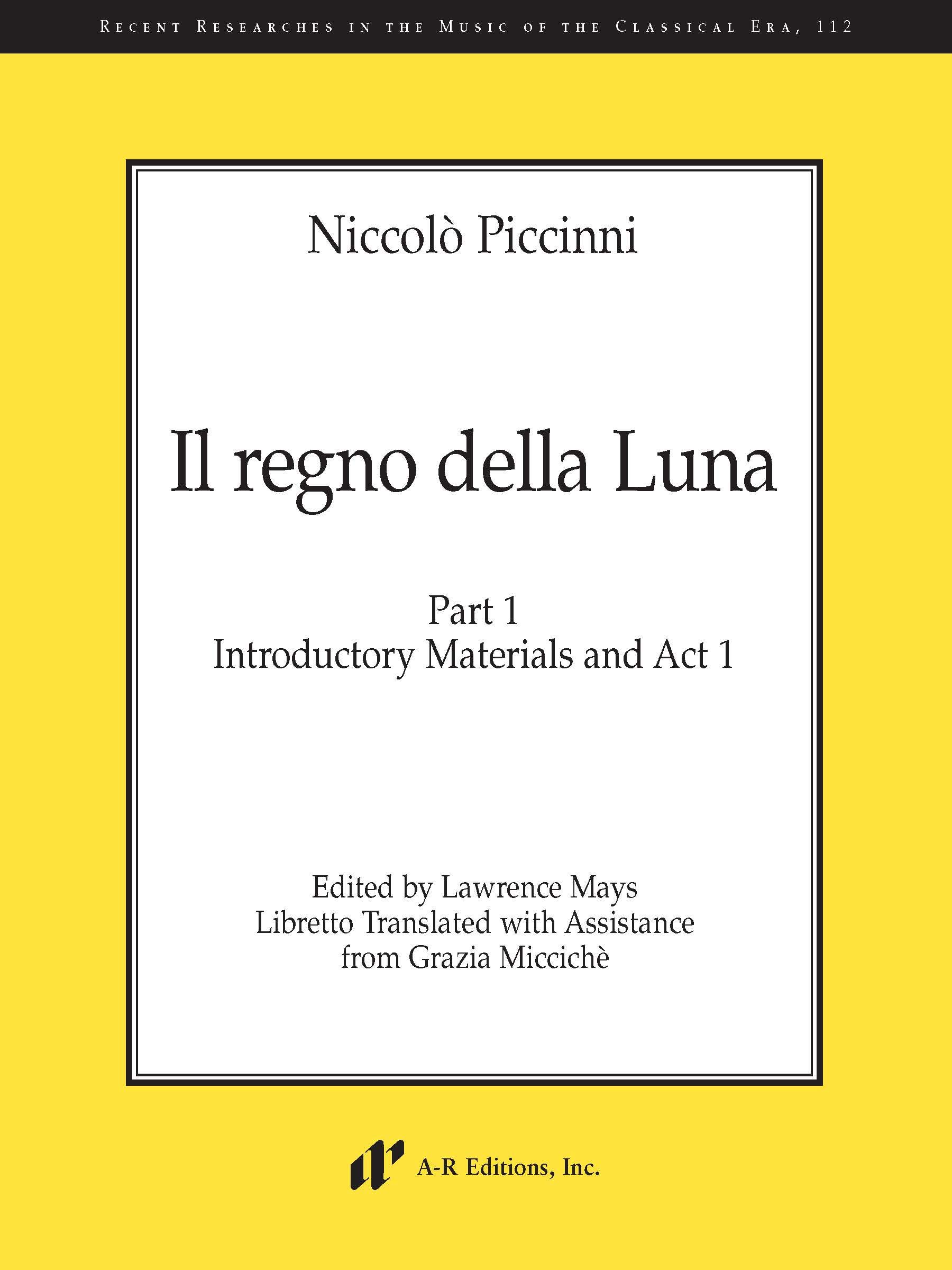Edited by Lawrence Mays, libretto translated with assitance from Grazia Miccichè
Part 1: Introductory Materials and Act 1
lxii, 6 plates + 243pp.
Recent Researches in the Music of the Classical Era, 112
A-R Editions, Inc. ISBN 978-1-9872-0215-1 $415
Part 2: Act 2, Act 3, and Critical Report
vi + pp. [245]-555.
Recent Researches in the Music of the Classical Era, 113
A-R EDitions, Inc. ISBN 978-1-9872-0300-4 $415
Buy it HERE
This three-act opera is unusual in that it is set on the moon! Unlike other moon-themed operas of the Baroque and Classical periods, the libretto tells of the visit of some Earth-living humans to a society where women are very much in control, peace reigns and the desire to be successful in business is viewed rather disapprovingly. Thus the men in the party get into difficulties trying to boast their way into the lunar princess’s good books, and the Earth-women decide the moon is such fun they’d rather stay than go home!
Piccinni’s original setting of 1770 for Milan is lost, so Mays’s edition is based on materials for the Dresden revivals later in the decade, where it is scored for pairs of oboes, horns and trumpets with drums, strings. The seven characters are two sopranos, a mezzo, two tenors, a baritone and a bass. Arias were cut from the Milan libretto for the Dresden performances and it is noticeable that while there are six arias in Act 1, there are only four in Act, and only one in Act 3; conversely, the number of ensemble pieces rises as the opera progresses and the secco recitative gradually gives way to accompagnati. The music is hardly sophisticated (like many contemporary operas, there is a little too much repetition built into the phrases for that) – nor indeed is much of the libretto! – but it is tuneful and full of the necessary energy to carry the action.
A welcome addition to the catalogue of available operas – will someone take on a production?
Brian Clark
